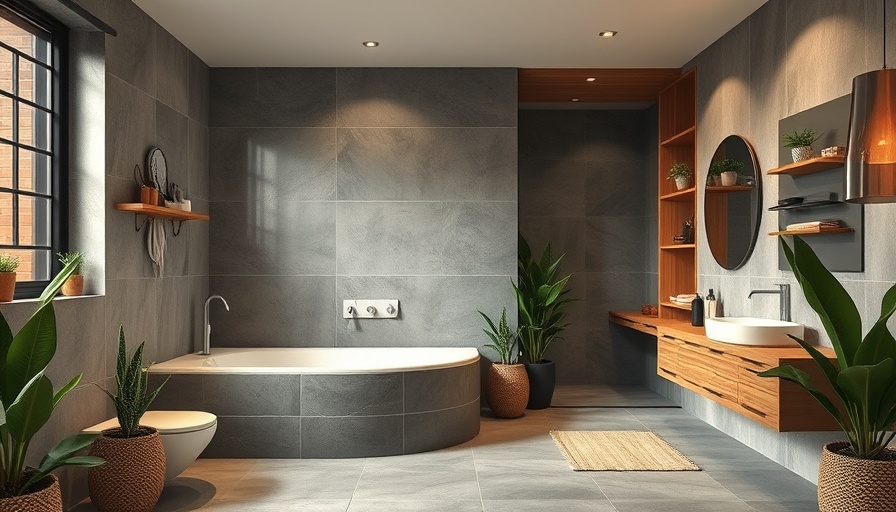
Redefining Interior Design: The Role of AI
In the dynamic world of interior design, the integration of artificial intelligence (AI) is both innovative and disruptive. While AI presents powerful tools for generating stunning visuals and guiding design decisions, it also raises ethical questions and necessitates a deeper exploration of what it means to create a home. Designers must now consider how AI impacts the all-important human connection integral to successful design.
Human-Centered Design: The Heartbeat of Creativity
The essence of great interior design revolves around the personal connection between designers and their clients. Beyond fulfilling functional needs, a skilled designer taps into the emotional and psychological dimensions of living spaces, crafting environments that resonate personally. For example, a designer understands how a cherished family heirloom can take center stage in a room, evoking nostalgic memories. While AI can efficiently analyze trends and offer various design solutions, it lacks the intuitive grasp of human experiences and emotions that a designer brings to the table.
The Ethical Implications of AI in Design
As AI tools become more integrated into design workflows, ethical considerations arise. Crystal Bright emphasizes the importance of transparency; designers must disclose when AI-generated images have been utilized. This builds trust with clients and accurately manages expectations. Additionally, the use of AI should enhance, rather than replace, the designer's creativity, as they remain committed to originality and personalization.
A Double-Edged Sword: The Benefits and Risks of AI
AI serves as a double-edged sword in the design process. It offers efficiency and innovation, allowing designers to visualize ideas swiftly and explore boundless creativity. However, ethical issues such as bias in algorithms and concerns over data privacy cannot be overlooked. Designers must adopt an ethical framework that underscores responsible data use and transparency in their practices, ensuring that AI enhances their work without compromising client trust.
Innovating with Integrity: Best Practices for AI Integration
To navigate the challenges presented by AI, designers should consider best practices for its ethical implementation. Starting with a solid ethical foundation ensures that designers use AI tools responsibly. Prioritizing data privacy and security protects client information, while collaborating with experts in technology and ethics fosters responsible AI use. Continuous learning keeps designers informed about the evolving landscape of AI, ensuring they can confront ethical challenges head-on.
Looking Ahead: The Future of Interior Design with AI
The future of interior design is undoubtedly intertwined with AI technology. By embracing ethical principles and best practices, designers can harness AI's potential to amplify their creativity while maintaining the human connection that forms the core of their practice. This balance will ensure that interior design remains vibrant, innovative, and resonant with the human experience, even as technology evolves. For homeowners, understanding how AI can be responsibly used in design projects may lead to more informed decisions, enhancing both the aesthetic and functional aspects of their living spaces.
For those looking to remodel or upgrade their kitchen, remember that while AI can provide innovative ideas and visualizations, it's ultimately your story, your preferences, and your family's needs that should guide the final design. A designer’s unique touch will always be irreplaceable, and the right balance between human intuition and AI tools can create spaces that are truly transformative.
If you're considering a kitchen remodel or want to explore how AI can help enhance your design choices, don't hesitate to consult with experts who can provide insights on blending technology with timeless design principles. The synergy between human skill and AI potential is where the magic of interior design occurs.
 Add Row
Add Row  Add
Add 




 Add Row
Add Row  Add
Add 

Write A Comment